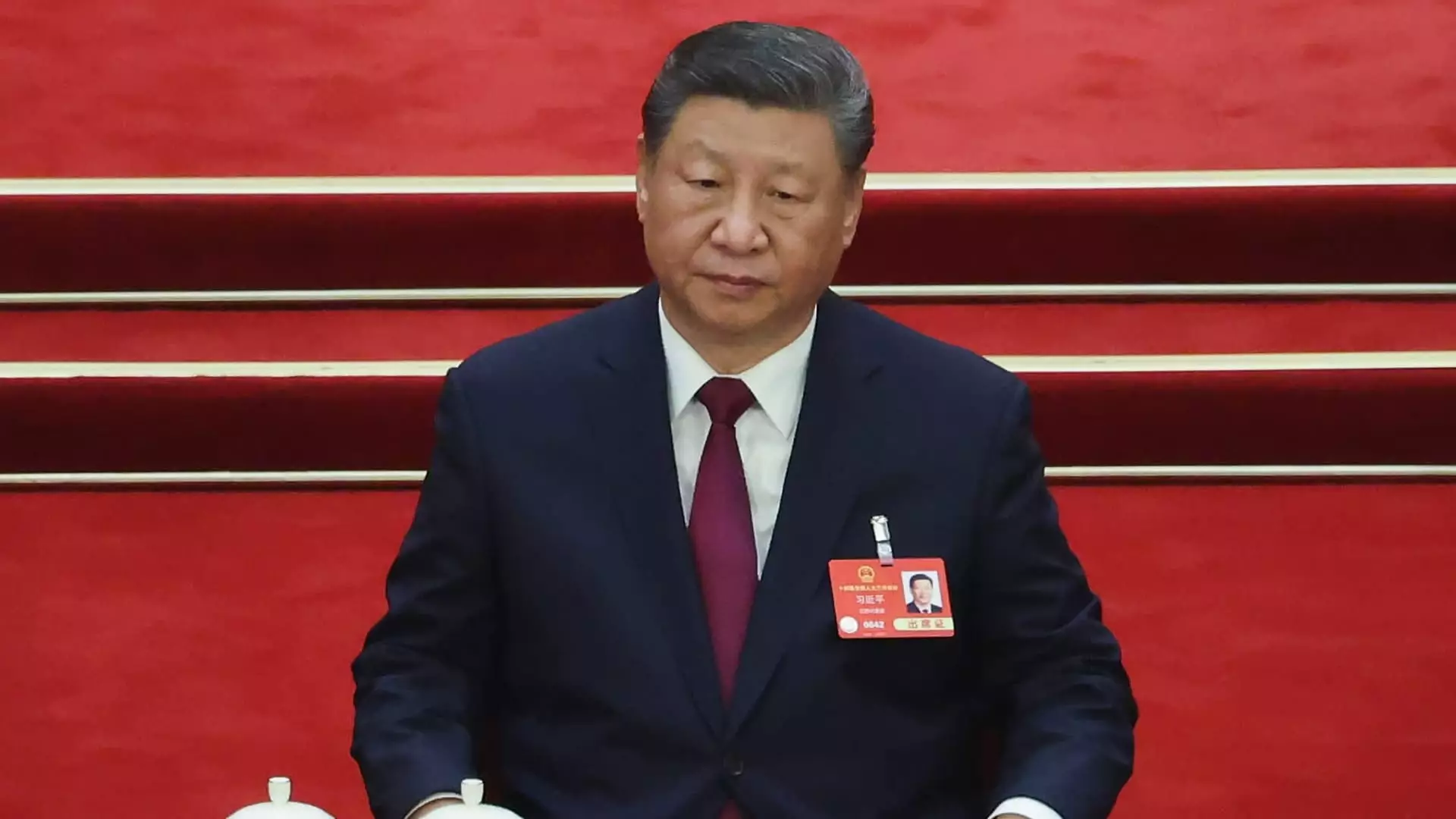In a geopolitical climate colored by hostility and short-sightedness, the United States and China find themselves trapped in an ominous cycle of escalating tariffs. The Trump administration’s belligerent economic strategies, which have seen tariffs on Chinese imports soar to an alarming 125%, are a troubling manifestation of misguided assertiveness. On the other side of the Pacific, China retaliates with a staggering hike of its own—from 34% to an unprecedented 84%—effectively weaponizing economic measures against American goods. This tit-for-tat exchange threatens not only the structural integrity of international trade but also the fragile global economy, which is already facing challenging times post-pandemic.
The Ripple Effect of Escalation
What’s particularly concerning is not just the eye-watering numbers but the broader consequences of such aggressive tariff policies. With U.S. exports to China valued at $143.5 billion and imports amounting to $438.9 billion in 2024, this kind of economic conflict has the potential to disrupt not just bilateral trade but global supply chains. Consumers and businesses alike are caught in the crossfire, and it’s difficult not to view this spiraling tit-for-tat as reckless and self-destructive. Amidst this chaos, investor sentiment is shaky; the S&P 500 is sharply down, looming close to a bear market status, sending shudders through the economic fabric of the nation.
The Dangerous Game of Negotiation Tactics
U.S. Treasury Secretary Scott Bessent’s condemnations portray China as the ultimate villain in this scenario—”the worst offenders in the international trading system.” But such rhetoric leaves little room for constructive dialogue. While it’s valid to call out China’s problematic trade practices, a more diplomatic approach could have been ventured instead of resorting to harsh measures. Japan has demonstrated a willingness to negotiate under similar conditions, but China’s position suggests an inflexible stance. The looming question remains: Why are both superpowers not putting aside ego in favor of more meaningful conversations? The current approach serves only to exacerbate tensions and strengthens hardliners on both sides who refuse to compromise.
The Perils of Short-term Thinking
Looking at these events through a macroeconomic lens, one can’t help but worry that both nations are succumbing to a kind of short-term thinking that undermines long-term benefits for their respective economies. A significant trade war rarely has winners; it leads to increased prices for consumers and slows down economic growth. Higher tariffs risk alienating not just an adversary but also allies who rely on healthy trade relationships with both entities. This isn’t merely a dispute between two nations; it risks downgrading global economic prosperity, putting countless jobs in jeopardy on both sides of the Pacific.
Time to Reassess Priorities
In the current climate, it is imperative for not just American leaders but global policymakers to rethink strategies. Rather than feuding through tariffs, a collaborative approach might result in sustainable solutions for trade disputes. A shift in focus to innovation and development in areas like technology could pay dividends, creating a more equitable economic environment that can withstand the turbulence of international diplomacy. Engineers, entrepreneurs, and economists should be at the forefront of reshaping trade dynamics, rather than allowing politicians to dictate the future using tariffs as blunt instruments.
As the U.S.-China trade relationship continues to deteriorate, it becomes essential to broaden the conversation around these issues, valuing partnerships over enmity. Only through active engagement and negotiation can both nations navigate the stormy waters of global trade and steer towards a shared, prosperous future.

